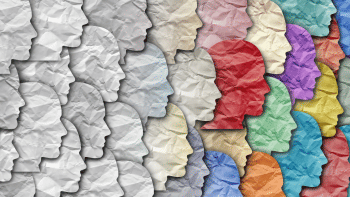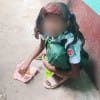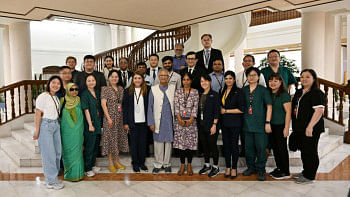Inclusive population data can be a driver of social change

This year's World Population Day's theme, "Embracing the Power of Inclusive Data towards a Resilient and Equitable Future for All," underscores the vital role of data in development. Despite this focus, significant data gaps persist in Bangladesh, including issues related to quality, coverage, and ethics. This is common in many low and middle-income countries (LMICs), although some are now making faster progress towards ensuring comprehensive, high-quality data.
The data gaps in Bangladesh are evident in its inability to provide statistics on many ongoing issues. For instance, the country cannot present its progress on many Sustainable Development Goals (SDGs) by 2030, despite being only six years away. According to the Bangladesh government's SDG tracker, only 38 percent of the 248 SDG indicators have comprehensive and reliable data, 31 percent are in progress, and 32 percent are unavailable. Most available data come from government organisations and development partners, often using proxy data to measure progress of indicators. Data availability also varies across specific SDGs, with some issues more prone to data gaps, while better quality data are available for long-standing community-level indicators. For instance, the country faces ongoing climate-induced disasters affecting health and the environment, but relevant data are mostly lacking or less usable, being based on specific community experiences rather than nationwide. While, SDG 3 (health and well-being) has better coverage, with updated data for 64 percent of its 28 indicators, around 33 percent of indicators for SDG 5 (gender equality), SDG 10 (reduced inequalities), and SDG15 (life on land) have no data, despite these being major concerns for Bangladesh.
Most data in Bangladesh lack comprehensive respondent characteristics, such as income, gender, age, race, ethnicity, migratory status, disability, and geographic location, which hinders thorough analysis. Additionally, outdated surveys, like the 2015 Violence Against Women (VAW) survey, are still used to measure progress on SDG 5, despite significant changes in gender equality over the past decade. It is worth mentioning that other countries have had similar experiences of depending on quite old VAW surveys, which are typically conducted every ten years to capture differences. Bangladesh's reliance on globally representative surveys, such as the Demographic and Health Survey and the Multiple Indicator Cluster Survey, also poses issues. These surveys' standardised questionnaires and approaches are often not sufficiently adapted to local contexts. While they enable international comparisons, they can produce misleading figures that hinder accurate tracking of Bangladesh's progress. For instance, independent research has identified significant undercounting of unintended pregnancies and overestimation of the poorest socio-economic quintile due to these surveys' failure to account for Bangladesh's unique cultural factors regarding pregnancy intention and living patterns.
The government of Bangladesh collects data primarily through the Bangladesh Bureau of Statistics (BBS) and ministry-level initiatives. While BBS produces relatively better data, ministry-level data often have significant limitations and lack interlinkage with related issues. For instance, DHIS 2, an initiative by the Ministry of Health and Family Welfare, records healthcare access and diseases. However, it has many limitations, including the absence of unique patient IDs, lack of a standardised transfer mechanism, limited coverage of government healthcare facilities, and exclusion of private healthcare facilities, which provide a significant portion of services. Additionally, there is no mechanism to link data on related issues, such as climate change-induced disasters (heat waves, cyclones, floods) recorded by other agencies like the Bangladesh Meteorological Department and the Department of Public Health Engineering, which affect diseases and healthcare access. These limitations render ministry-level data less useful for broader purposes, even though they may serve specific ministry needs.
Global experience shows that communities with severe data scarcity are largely excluded from progress, highlighting a clear link between data availability and development. This is evident in Bangladesh, where significant progress in areas like reducing maternal and child mortality, early marriage, and family planning has been achieved due to good data from international efforts, enabling better planning and monitoring. However, Bangladesh now faces stagnation in almost all these indicators, with a lack of data on new challenges being a major factor. This underscores the necessity of good quality data to track and sustain progress. Bangladesh lags behind in this aspect, particularly with marginalised communities like people with disabilities, tea garden workers, and tribal populations. Country-level estimates often produce unacceptable results, even in counting the population, such as the recent census reporting only 12,629 transgender individuals without considering their true numbers and implications.
People's lived experiences can never be summed up by a single statistic, nor can they be boiled down to data points. Each person embodies a unique collection of hopes, desires, and cultural backgrounds. Meaningful progress in Bangladesh requires a shift towards inclusive data, despite significant challenges. This includes investing in data collection infrastructure, enhancing technological capabilities, and reducing dependency on external support post-independence. Political commitment is crucial for ensuring reliable data collection and reporting. Furthermore, there is a need to enhance analytical capacity, as current data is primarily used for reporting purposes and lacks comprehensiveness. Data availability from governmental and non-governmental organisations in Bangladesh needs to be improved, as researchers always struggle to access data. Enhancing data literacy among policymakers and the public, as well as developing the country's capacity to process big data, is crucial to ensure that data is used effectively to inform decision-making. Inclusive data should be viewed not just as a technical tool but as a driver of social change. This World Population Day, let's commit to strengthening our data systems, fostering transparency and accountability, and building a future where no one is marginalised.
Dr Md Nuruzzaman Khan is associate professor in the Department of Population Science at Jatiya Kabi Kazi Nazrul Islam University, an associate fellow of the Bangladesh Academy of Sciences and a McKenzie fellow at the University of Melbourne. He can be reached at [email protected].
Views expressed in this article are the author's own.
Follow The Daily Star Opinion on Facebook for the latest opinions, commentaries and analyses by experts and professionals. To contribute your article or letter to The Daily Star Opinion, see our guidelines for submission.

 For all latest news, follow The Daily Star's Google News channel.
For all latest news, follow The Daily Star's Google News channel. 










Comments